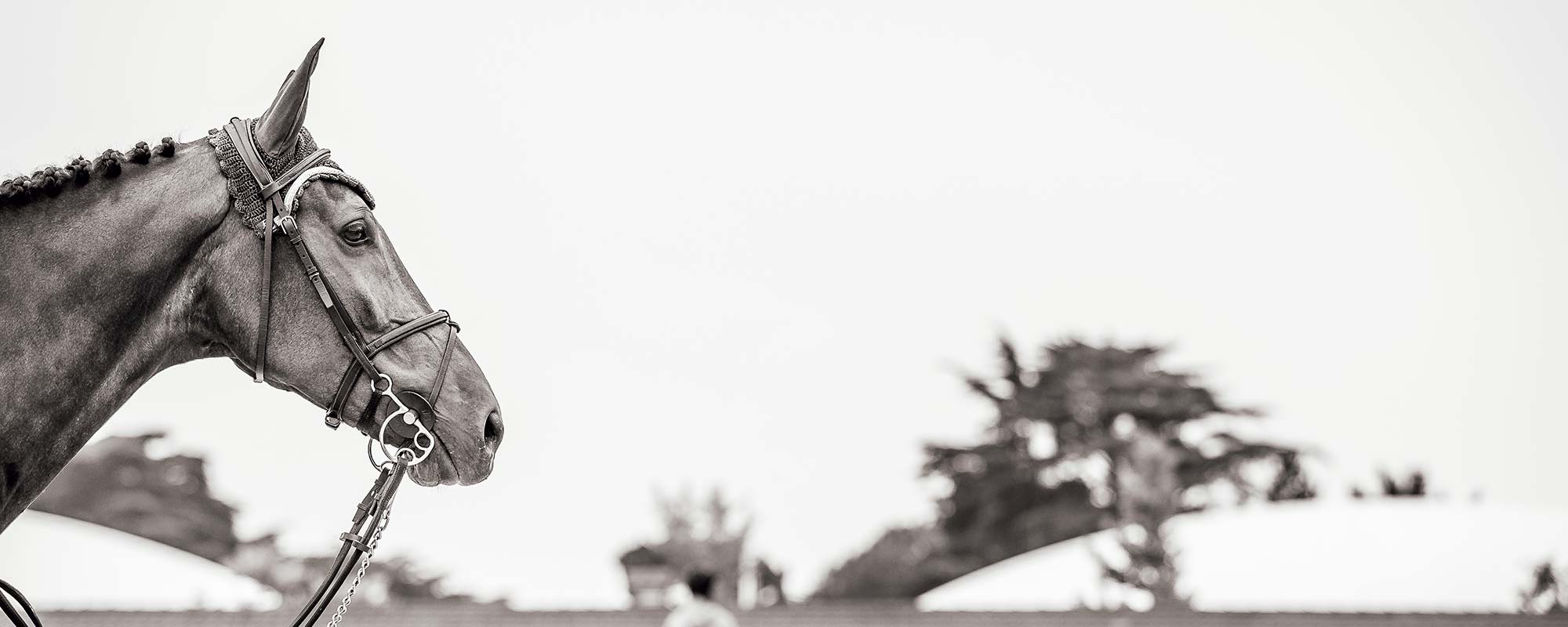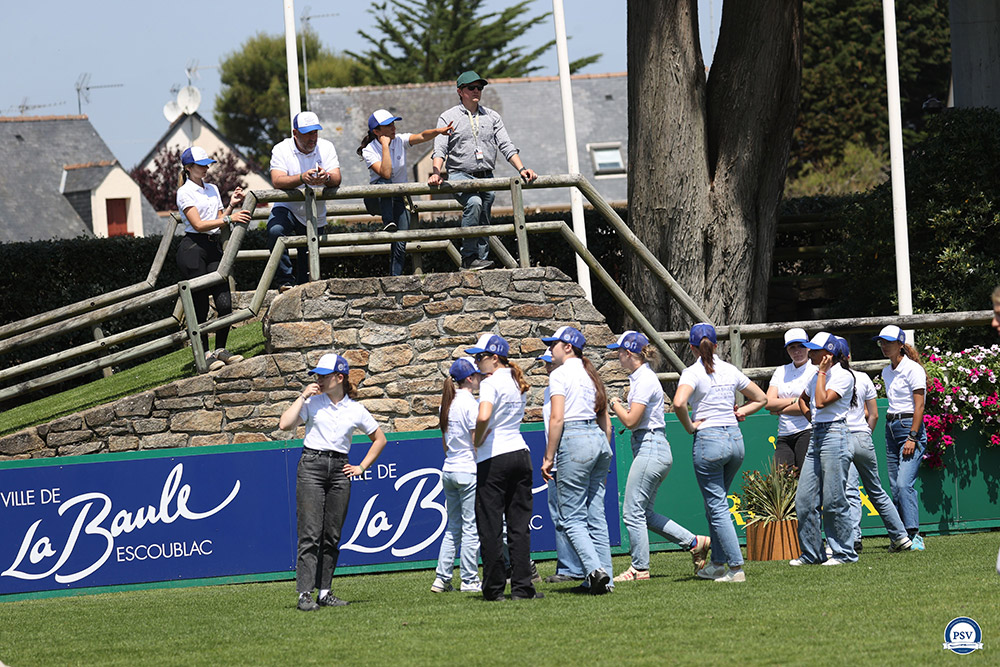The success of the Jumping International de La Baule Officiel de France is also the fruit of the work provided by dozens of people. In the grandstands, offices, stables, changing rooms, paddock and on the tracks, everything is in place and perfectly orchestrated to make the competition a truly exceptional event.
Of course, the riders and horses are the major stars of the Jumping International de La Baule. However, to enable them to shine, dozens of people are called upon. Whether judges, vets, caterers, waiters, gardeners, security staff, technicians, stewards and stewardesses, course attendants, etc., everyone does their utmost without counting the cost, often from very early in the morning until very late in the evening. This mission is not limited to the four days of competition. All the municipality’s technical teams, especially those responsible for the green spaces, work throughout the year to provide a perfect track, in collaboration with Green Consult, specialists in equestrian grass tracks. During the competition, they are still there, from 4 o’clock in the morning.
For Ruddy Dayon, a native of La Baule, the competition has always been a constant in his life. As a child, he did not miss a single edition. Since his 18th birthday, he has worked for the competition and is today the stable manager. “We arrive already on Monday,” he explains. “We spread out the wood shavings, the hay bales, the straw, etc. We also look after the box stalls. Afterwards, we have to manage the requests from the grooms. Drawing up a box stall plan is like making a seating plan. There are so many things to take into consideration, starting with taking care where to place the stallions and mares. On Tuesday, the pupils from the vocational senior high school come to help us. We have to check that everything is ready to welcome 80 trucks and ensure that the electricity is working, among other things”. It is then time for the first arrivals. “The stables open at midday on Tuesday,” says Ruddy. “The horses competing in the CSI 1* are often the first. Reception remains open until 10 o’clock in the evening. On Wednesday morning, at 5 or 6 o’clock, the trucks are already there. It is a case of all hands on deck before the vet’s visit on Wednesday afternoon”.
Once the events have begun, this immense machine starts up every morning at 6 o’clock, to empty the manure bins, clean the showers, sweep the reception area, etc. Any problems that occur have to be dealt with while ensuring everything is running smoothly, before again emptying the manure bins at 5 o’clock in the afternoon to ensure everything is impeccable.
Adrien Mele also cannot wait for the competition in La Baule. He is head of the grooms’ team for IFCE at the Haras du Pin stud farm and has been contributing to the team at the Jumping de La Baule since 2013. “The competition in La Baule is one of a kind,” admits the CSI 1* stable manager. “I previously worked at the riding centre, which allowed me to get to know the site. I know where the valves are, the water sprinkler system, etc. During the competition, I’m in charge of looking after the paddock, sales of wood shavings or hay and managing the pupils from Les Établières, which is the farming college in La Roche-sur-Yon”. Indeed, there are around forty pupils, currently undertaking their studies, who help, pick up the bars and especially learn. “We have two teams of twenty young people, one in the morning and the other in the afternoon,” points out Adrien. “We try to frame their participation in an educational context. They prefer to pick up the bars on the course rather than horse droppings in the paddock but that’s just normal. However, we explain to them that it also allows them to see how the riders work and that there are plenty of things to be learned. A competition is not just glitter and glamour. What’s more, working at a competition like La Baule can be a fine springboard to greater things”.
On Sunday, as soon as the Rolex Grand Prix de la Ville de La Baule has finished, the buzz regains the stables as the departures begins. When the horses are gone, the work still continues. The box stalls have to be cleaned, the manure needs to be removed and everything needs to be cleaned to ensure just the memories and thrills remain. “Our aim is that everyone has a good experience of the competition and leaves in a happy mood,” concludes Ruddy. This is a philosophy shared by all those without whom none of it would be possible.


